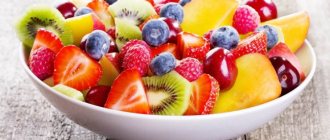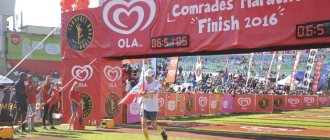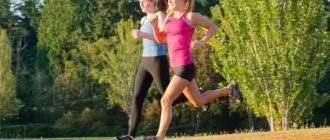There is a well-known saying: you are what you eat. In the running theme, you can say: you run the way you eat. What, how much and when you eat directly affects the effectiveness of your workouts. We asked professional running coaches what to eat before running. And, as always, everyone has their own opinion on this matter.
Complex carbohydrates 2-3 hours before training
Ilya Belousov, head coach of the Run Or Die running club:
Your pre-workout meal should consist of carbohydrates. Carbohydrates are the so-called “fuel” that supplies our body with energy during the training process. I recommend eating low fiber carbohydrates before running. For example, various cereals cooked in water, skim milk or yogurt, energy bars, breakfast cereals and fruits, pasta. Some people prefer to eat baked goods, but those who are watching their figure should avoid such foods.
The meal before running should not contain any fatty foods, since they are poorly absorbed by the body and take a long time to digest; running after such a meal becomes difficult and uncomfortable. Dietary fiber contained in legumes can cause cramps and flatulence, so it is better to avoid them too.
I don't recommend training on an empty stomach. Such training will not give the desired result; you may feel unwell, dizzy or lose consciousness. At the same time, you should not eat too heavily before training, as this can lead to heaviness in the stomach, pain in the side, nausea while running, as well as a decrease in the endurance and speed qualities of the athlete.
I recommend that my students eat a large meal (complex carbohydrates) 2-3 hours before training, or have a light snack (smoothie, fruit, dried fruit) 30 minutes - 1 hour before training. However, it is worth noting that the intensity of food digestion is different for everyone, so the optimal time to eat before training can be determined independently in practice.
As for fluids, I do not recommend using too much water before starting a workout. A large amount of drinking water results in a huge load on the vascular system, heart and kidneys. This is one of the reasons why a runner may feel a tingling sensation in their side while running a race. Half an hour before training, you can drink no more than 200 ml of water. Don’t forget to drink water in small sips during the training process.
How much water should runners drink?
Training and competitions: what you need to know
When it comes to eating to maximize your running performance, be sure to experiment with what works best for you.
For example, you may find that eating white rice instead of a baked potato with a full meal 3 hours before running is better for your stomach.
Or you may notice, for example, that eating a banana as a snack an hour before a run doesn't give you stomach cramps while you run, but an apple does.
Training runs are the best time to experiment with different foods to see what works best for you ().
Never do anything new on race day that you haven't done in practice because you don't know how your body will react to the change.
Conclusion:
Training sessions provide a great opportunity to experiment with different foods and see how your body reacts to them.
Depends on training time
Sergey Sorokin, co-founder and head coach of the Jaxtor marathon club:
Training plans for marathon and half marathon. and start preparing today.
It all depends on personal preference and the timing of the workout. If you workout in the morning, it is better to eat porridge or toast so that you do not feel discomfort from hunger. If you train in the evening, then 2-3 hours before you can eat slow carbohydrates (rice, buckwheat, pasta, porridge) with light meat such as fish, chicken or eggs. It is better not to eat red meat before training, because... This food takes a long time and is difficult to digest.
In general, everything is individual, so find your own way and use it. The main thing is not to eat fatty, salty, spicy foods before running, and then your body will thank you with good condition during training.
In the morning, I eat a little porridge (4-5 tablespoons) an hour before training, and pasta and 2 eggs 2-3 hours before my evening training.
The best breakfast is oatmeal with water
Maxim Denisov, founder and head coach of the Gepard school:
Firstly, it is necessary to eat before running. Nowadays there is a fashion, especially among girls, to run on an empty stomach: supposedly this burns more fat. But no, the workout will not be complete on an empty stomach.
If you train in the morning, the best breakfast is oatmeal with water. You can eat a banana or toast with cheese. This food is quickly digested, and you can start training in 30-40 minutes.
If you train in the evening, then watch what you eat for lunch. I do not recommend eating fried or meat. You can have soup, or something fish or chicken for main course. This lunch will be digested in 2-3 hours. But if you had a heavy lunch, the food will not be absorbed faster than four hours, and you may feel heaviness during training.
Nutrition before running
The carbohydrate component of our diet is absorbed by the body many times faster than, for example, protein. Therefore, it is obvious that it is better to consume them before the race, so that the body quickly turns them into energy. Foods that contain more carbohydrates include the following:
- porridge;
- yoghurts;
- energy bars;
- specialized breakfast cereals;
- fruits.
Answering the question of what to eat before running, we can definitely say - you should not eat bread or other flour products, since carbohydrates must be correct .
You shouldn't stick to a strict diet unless you are a professional athlete preparing for an upcoming competition. Give yourself cheat meals, treat yourself to your favorite dishes, but don’t do it every day. This way you can stick to a diet or a certain diet constantly, and you can avoid breakdowns.
Before jogging, it is also better to give up fatty foods , because they take a long time to digest, so running with such a “load” will be very uncomfortable. It is also better to postpone legumes for another time. They can cause flatulence and cramps during training.
As for protein, it is worth taking into account the individual characteristics of the body and metabolic rate. Some people, on the contrary, need protein food before training, while others still prefer to eat protein after it. If you want to get enough protein before a race, then you don’t need to use fatty foods for this; it’s better to cook chicken breast or turkey, and you can also eat boiled eggs, which are also considered a good protein “supplier”.
It is best for runners to start training after 2-3 hours, especially if breakfast or lunch was heavy. If it was light, then you can go for a run in an hour.
You can refuse food before a race only if the run is short - up to 40-60 minutes. Before doing this, be sure to drink a small amount of water. If you are planning a workout lasting more than an hour, then you need to eat before it.
Before running, you should not rely on liquids. If you drink a lot of water, this will cause increased stress on the cardiovascular system, as well as on the kidneys. Everyone has experienced a tingling sensation in the side during a race - one of the reasons for this may just be the large amount of fluid you drink before the race.
Breakfast for a runner is an important part. Don't skip your morning snack, as breakfast will give you energy for the whole day.
If you don’t want to worry about what to eat before running, and plan to give up food altogether, then it’s better to drink about 200 ml of liquid half an hour before training . It is desirable that it provides an additional energy boost - slightly sweetened tea, mineral water, gainer or other special supplements for athletes.
Slow carbohydrates
Denis Vasiliev, coach of the running club Runlab Running Laboratory, St. Petersburg:
You can eat anything before running. How the body will react to this or that food - that is the question. It is recommended to eat foods rich in slow carbohydrates: legumes, various cereals, whole grain products, vegetables and fruits. Then the body will be supplied with “fuel” for a long time, and your energy reserves should last for a long time. You should be careful with dairy products, some vegetables and fruits, and other foods rich in fiber. Excessive consumption can lead to gastrointestinal upset during training. Ideally, do not drink tea or coffee before training. They contain caffeine, which is a diuretic. And dehydration is a runner's enemy.
The optimal period of time between eating and running is individual for everyone. I know fast runners who can have a hearty breakfast, and an hour later they are already “rushing around” during training and feel quite comfortable. Choose the diet that is optimal for you, monitor your diet and then, undoubtedly, you will be in great shape both in everyday life and in training!
Simple carbohydrates and be sure to drink
Yana Khmelev, founder and head coach of the Bestia.club running school:
Before running, you can eat simple carbohydrates and be sure to drink. Especially if you train in the morning, because your blood thickens overnight. Simple carbohydrates are something sweet: a banana, water with honey, juice, bread with jam, or even candy. You need something that will immediately enter the bloodstream and be burned during training. It is better to eat about 100-200 kcal, make sure you burn more calories than you consume.
There is no need to eat fiber, because products containing it are difficult and take a long time to digest. Also, you should not eat anything fatty or protein - this also takes a long time to digest.
Snack while running
We've sorted out what you need to eat before running. Now we’ll find out whether snacks are necessary during training. Fueling during a race is necessary only for those who train for long distances, covering enormous distances - up to several tens of kilometers. In other cases, if the workout is no more than an hour and a half, replenishment is unlikely to be required. If you wish, you can use suitable sports nutrition to ensure you have enough energy.
It is advisable to close the “carbohydrate window” in order to quickly restore lost energy. BUT! This snack should not replace a full meal after training.
When training for many hours, it is advisable for runners to have a snack every hour . An intake of 250 kcal, consisting of approximately 60 grams of carbohydrates, will be sufficient. Recharge can be in the form of sports nutrition (mixtures, drinks, bars, etc.). It is convenient and quickly saturates the body. Various fruits, such as bananas, are also suitable. Oatmeal cookies are good for these purposes.
No fatty foods
Oleg Babchin, founder and senior coach of the Second Wind school:
Exercise requires energy: we get the best and most effective “fuel” from carbohydrates, both fast and slow. Your stomach should be empty at the start of your workout! Any food with a significant fat content will take a long time to digest, and there is a chance of starting a heavy workout, which will negatively affect breathing. It is better to refrain from any fatty foods before training, only the classics: salad, pasta, various cereals, soup. If time is really short and you want to eat, then there is a secret weapon - sweet tea with a cookie, bagel or dry bread.
Do you need breakfast before a morning run and what should it be?
Breakfast before a morning run is always a problem: time is short, many people don’t want to eat at this time, and running with a full stomach seems like a dubious pleasure.
However, sports nutrition experts strongly advise not to skip breakfast before your morning workout: when we wake up, our metabolic rate and blood sugar levels are at their lowest, so recharging your battery is essential.
What's the solution? If you have a light jog of 5-6 km, you can limit yourself to a light snack. A banana or protein bar will do . By the way, they will have time to “settle” in your stomach while you get dressed.
If you are planning a more serious distance (an hour run or longer), breakfast should be substantial. Make an effort - get up early to prepare oatmeal (preferably with water or oat milk).
Many people don't like good old oatmeal, but it is an ideal source of unrefined carbohydrates (and therefore energy) for runners. In addition, it contains protein, B vitamins, vitamin E, fiber and minerals (including iron and calcium) and has a low glycemic index. The latter means that carbohydrates will very slowly enter your bloodstream, fueling you every kilometer you run.
You can diversify the porridge with dried fruits, honey, berries and nuts, and you need to eat it at least forty minutes before class.
An option for the really lazy is cereal . You don’t even need to cook them: just choose the ones you like in the store. They also contain a sufficient amount of both fast and slow carbohydrates. But keep one caveat in mind when purchasing: you shouldn’t take options with honey and nuts - as a rule, they contain a heavy dose of sugar, which will quickly enter the bloodstream and leave just as quickly, leaving you hungry and lethargic. Give preference to whole grain cereals without honey, candied fruits and chocolate.
As for coffee , it is not prohibited, although it requires caution. On the one hand, with a tonic drink it is really easier for the body to wake up and perform sports feats: caffeine has been proven to help improve running performance by 1 to 3%.
However, too much caffeine can lead to high blood pressure, increased heart rate, loss of concentration and increased nervousness. Therefore, it is recommended to have a mug (only one!) of coffee in the morning - and at least an hour before training.











